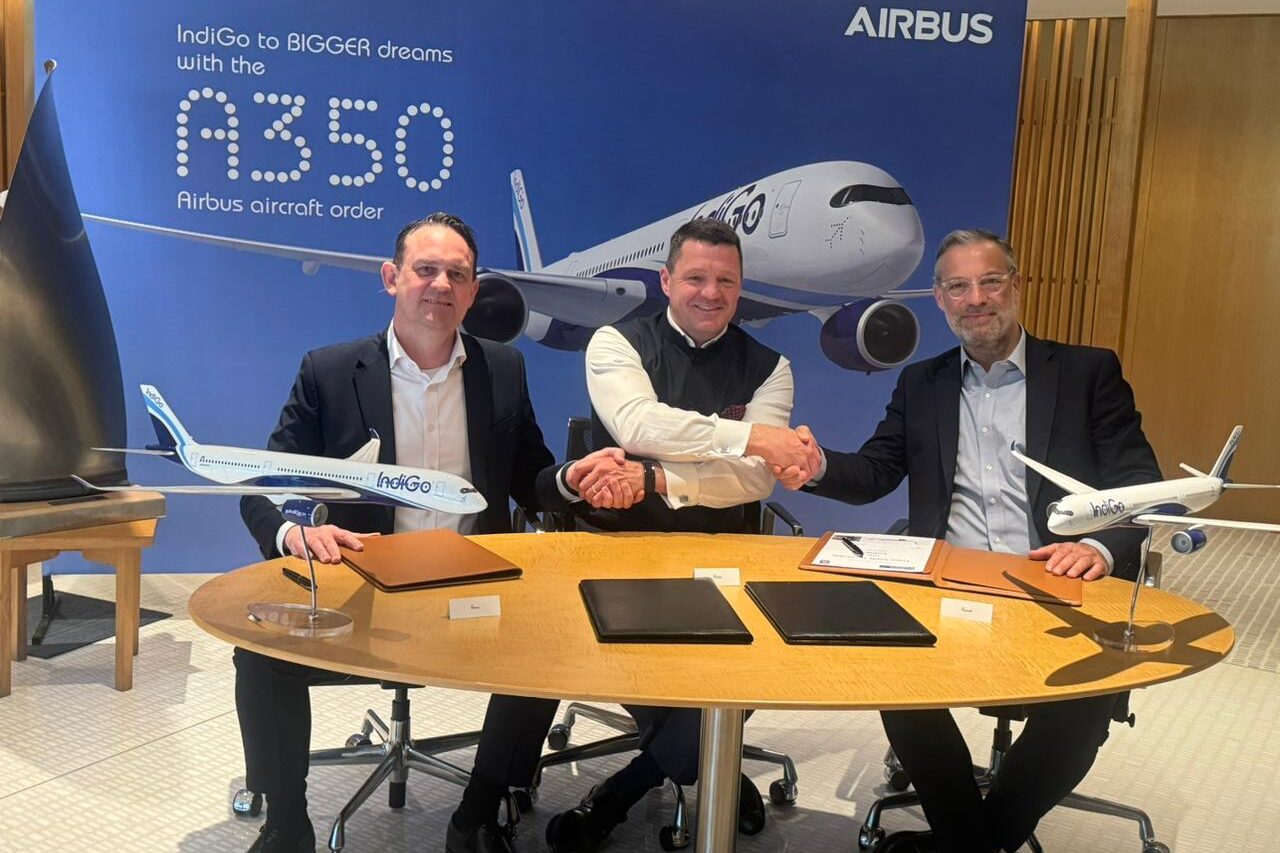India’s largest carrier IndiGo, which recently placed its first-ever order for widebody aircraft, plans to offer nonstop connectivity from major Indian airports to global destinations.
According to IndiGo CEO Pieter Elbers, the decision is aligned with the government’s vision to make India a global aviation hub and powerhouse.
In the past 18 months, IndiGo has added 7 international destinations while expanding strategic partnerships, the most recent one being the codeshare partnerships with Malaysia Airlines and Qantas Airways.
But on a conference call with investors Tuesday, IndiGo CEO Pieter Elbers was tightlipped on where they intend to fly.
“We clearly have ideas where to go, how to develop it, but I don’t think this would be the right point in time to already move into what’s the exact network.”
He said that the plane clearly has the capabilities to go to many parts of the world from different Indian cities. “Amsterdam should be somewhere on the map,” he said half-jokingly – Elbers was born in the Netherlands, and had been the president and CEO of KLM before moving to IndiGo in 2022.
The IndiGo Aircraft Orders So Far
Last June, IndiGo placed an order for 500 aircraft with Airbus. The airline has also placed an order for XLRs and has also retained the purchase rights for an additional 70 aircraft.
“The XLRs, expected to arrive from next year, will help IndiGo further extend its range and increase the number of overseas routes for the airline, which today serve out of one specific point in India,” Elbers said.
Nairobi is one example. “Today, we operate today out of Nairobi — from Nairobi to Mumbai. With the XLR, we could start combining it also with Bengaluru or Delhi or other places in India itself.”
Currently, IndiGo has an outstanding order book of around a little short of 1,000 aircraft with a mix of 320neos, 321neos, 320 XLRs and now also the 350-900 aircraft.
IndiGo had entered into a wet lease agreement for a Boeing 777 widebody aircraft, commencing operations on the Delhi-Istanbul route in February last year. Subsequently, in May, the airline introduced its second Boeing 777 aircraft, also under wet lease terms, to service the Mumbai-Istanbul route.
Elbers said the wet lease and the codeshare with Turkish Airlines have given the airline a lot of insights and provided it with the necessary experience.
The Underpenetrated Indian Aviation Market
Elbers called the Indian aviation market still highly underpenetrated, both in domestic as well as in the international markets.
India has only around 70 wide-body aircraft and the Indian carriers are significantly underrepresented in the nonstop, long-haul international market, he said.
IndiGo, which currently operates around 350 aircraft, plans to operate 600 aircraft by 2030. “Today, we operate around 350-ish planes. By 2030, we will be operating in the range of 550 to 600 aircraft,” said Elbers.
Elbers said some of the triggers for the decision to order the widebodies include India’s economic development, the growing aspirations of Indian consumers to travel not just in the region, but beyond. He further said that for an airline that turns 18 this year this is a natural transition.
Subscribe to Skift Pro to get unlimited access to stories like these
{{monthly_count}} of {{monthly_limit}} Free Stories Read
Subscribe NowAlready a member? Sign in here
Subscribe to Skift Pro to get unlimited access to stories like these
Your story count resets on {{monthly_reset}}
Already a member? Sign in here
Subscribe to Skift Pro to get unlimited access to stories like these
Already a member? Sign in here
